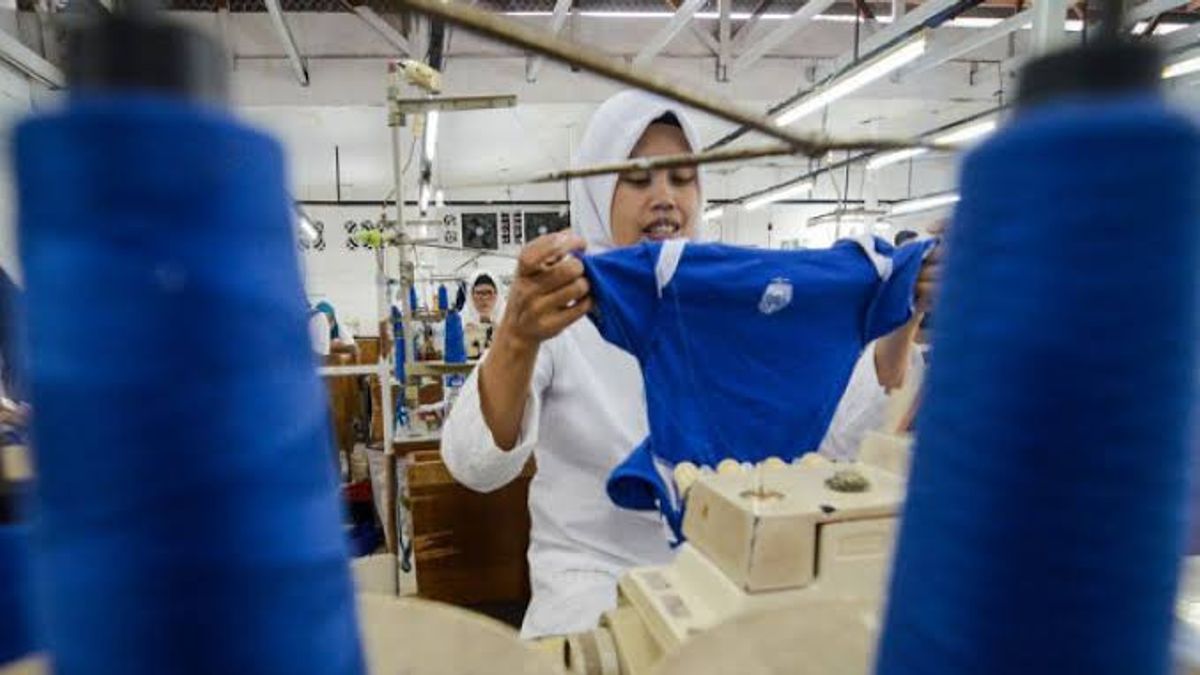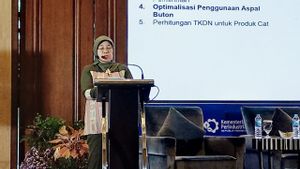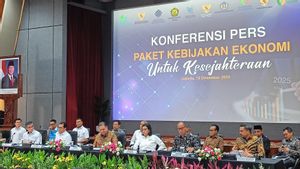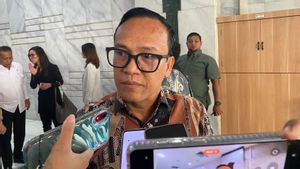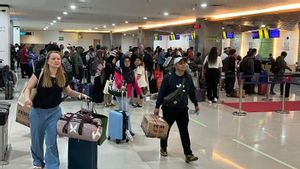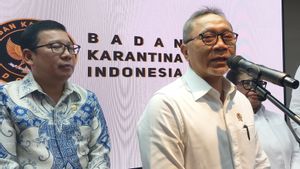JAKARTA - The Association of Indonesian Filamentary Filament & Benang Producers (APSyFI) said, as many as 60 textile companies were closed in the last two years (2022-2024). This data also shows that the textile industry in Indonesia is experiencing a sharp decline.
"Finally, around 250,000 employees experienced layoffs (PHK)," said APSYFI General Chair Redma Gita Wirawatasta in a written statement, quoted Wednesday, December 18.
Redma assessed that the closure of these textile companies was triggered by the increasing number of illegal imports flowing into the domestic market without strict government control. This worsens the condition of the textile industry in Indonesia, which has actually experienced deindustrialization over the past 10 years.
When the COVID-19 pandemic in 2021, textile imports from China stopped, so the national industry had experienced recovery. However, when the lockdown ended and imports reopened, illegal goods flooded the domestic market, leaving many companies forced to stop operations.
This condition, said Redma, also has an impact on related sectors, such as the petrochemical industry and the production of Purified Terephtalytic Acid (PTA), which is the main raw material for textiles. According to him, if PTA's production is disrupted, electricity demand for the textile sector will decrease.
"The problem is uncontrolled imports. This reduces our industrial utilization and has an impact on other sectors, such as electricity and logistics," he said.
According to him, the textile industry is actually very important for the Indonesian economy, with a contribution of 11.73 percent to electricity consumption in the industrial sector and 5.56 percent to the national Gross Domestic Product (GDP).
However, most of the domestic market is now filled with illegal imported goods that cause losses to the state, both in terms of taxes and import duties.
"Imports are illegal to become the main killer for the Indonesian textile industry, with around 40 percent of goods entering Indonesia and not officially registered," said Redma.
He also suggested that the government immediately address this illegal import problem to save the domestic market and allow the local textile industry to recover. In fact, according to him, this sector could again contribute up to 8 percent to GDP if this problem could be resolved.
SEE ALSO:
Therefore, he continued, various steps must be taken, including stricter import restrictions and improved systems at the port. So far, there have been system weaknesses at the port, especially regarding the use of scanners and import manifest data (official documents of imported goods) that are not synchronous. This is an opening for the entry of illegal goods.
Furthermore, Redma also emphasized the importance of increasing the competitiveness of local products. By utilizing the huge domestic market potential, Indonesia can revive the textile industry and reduce dependence on imports.
"However, all of this must be started by improving regulations and dealing with illegal import problems," he concluded.
The English, Chinese, Japanese, Arabic, and French versions are automatically generated by the AI. So there may still be inaccuracies in translating, please always see Indonesian as our main language. (system supported by DigitalSiber.id)
